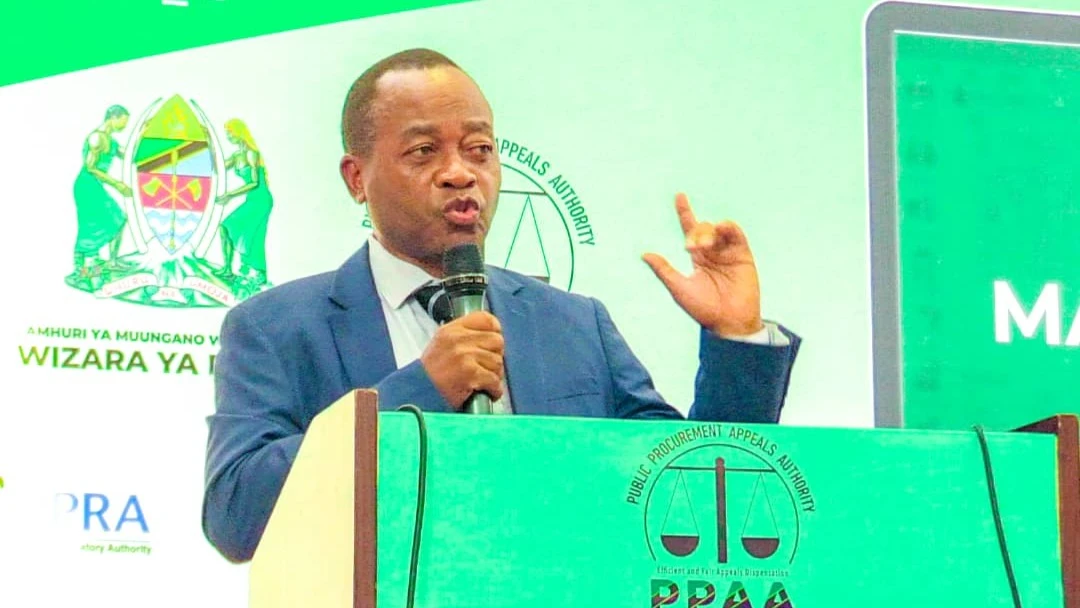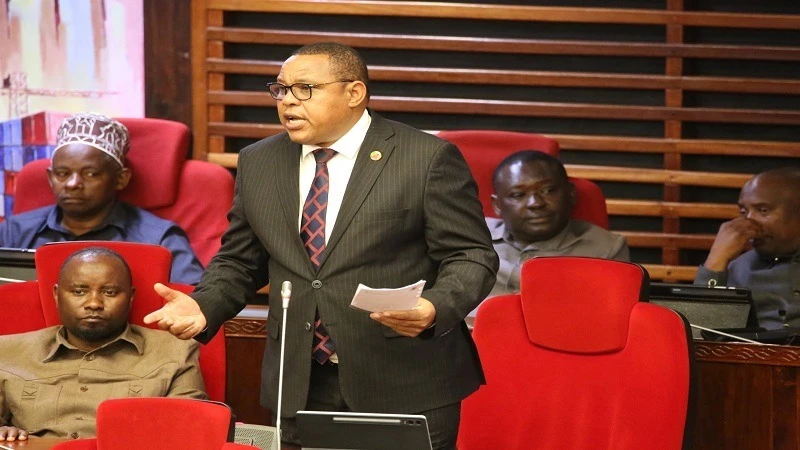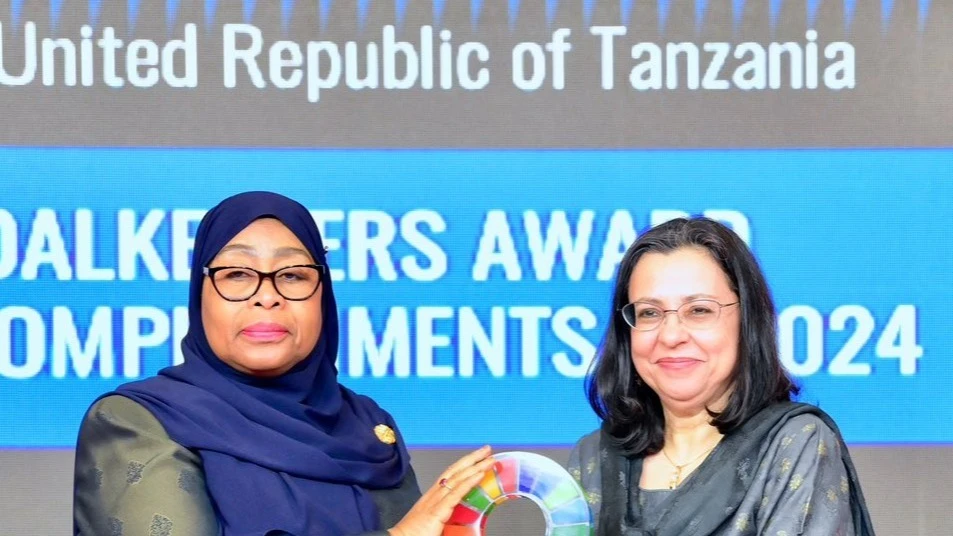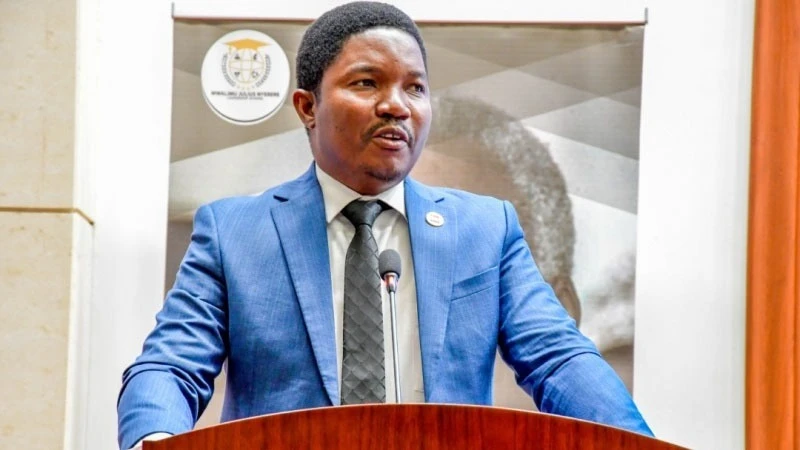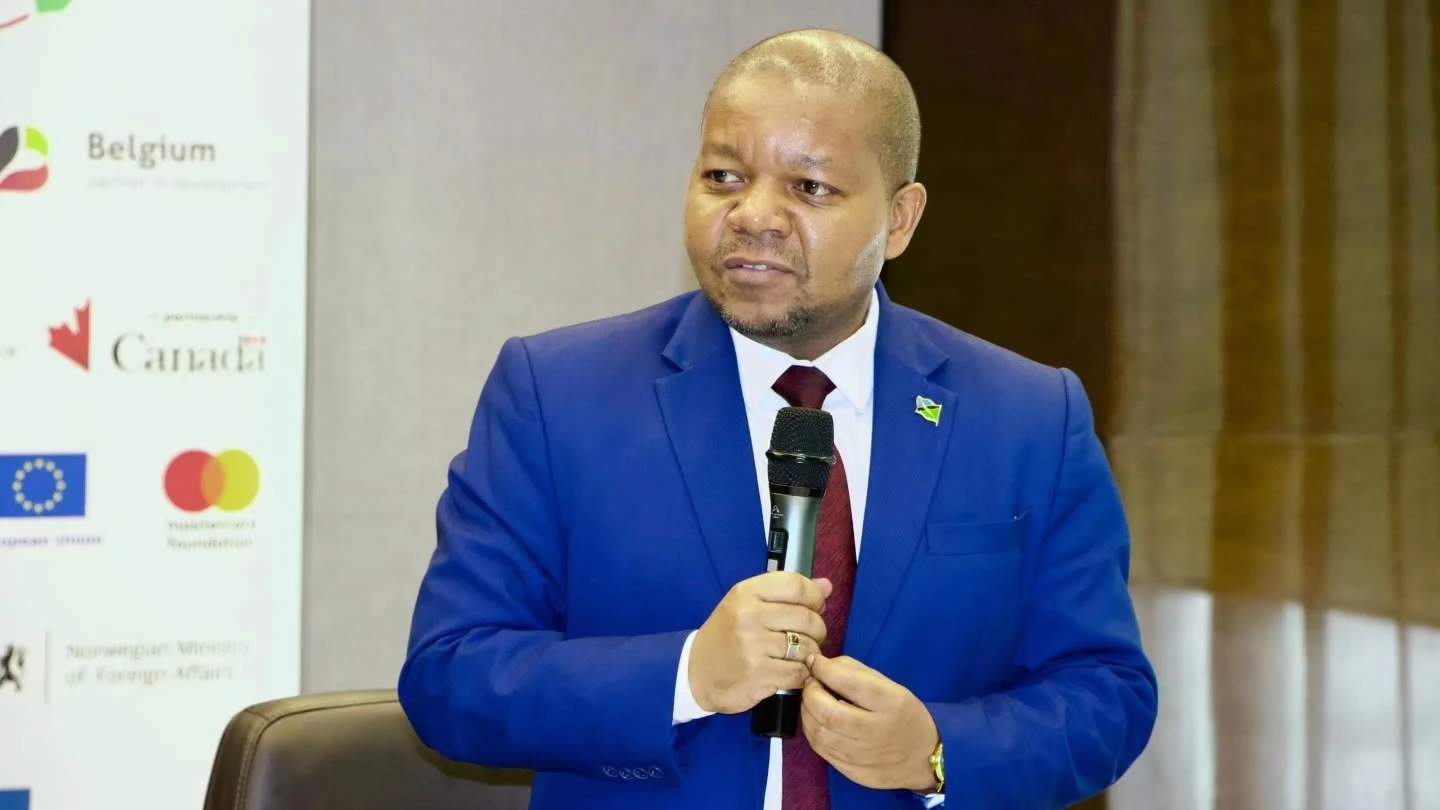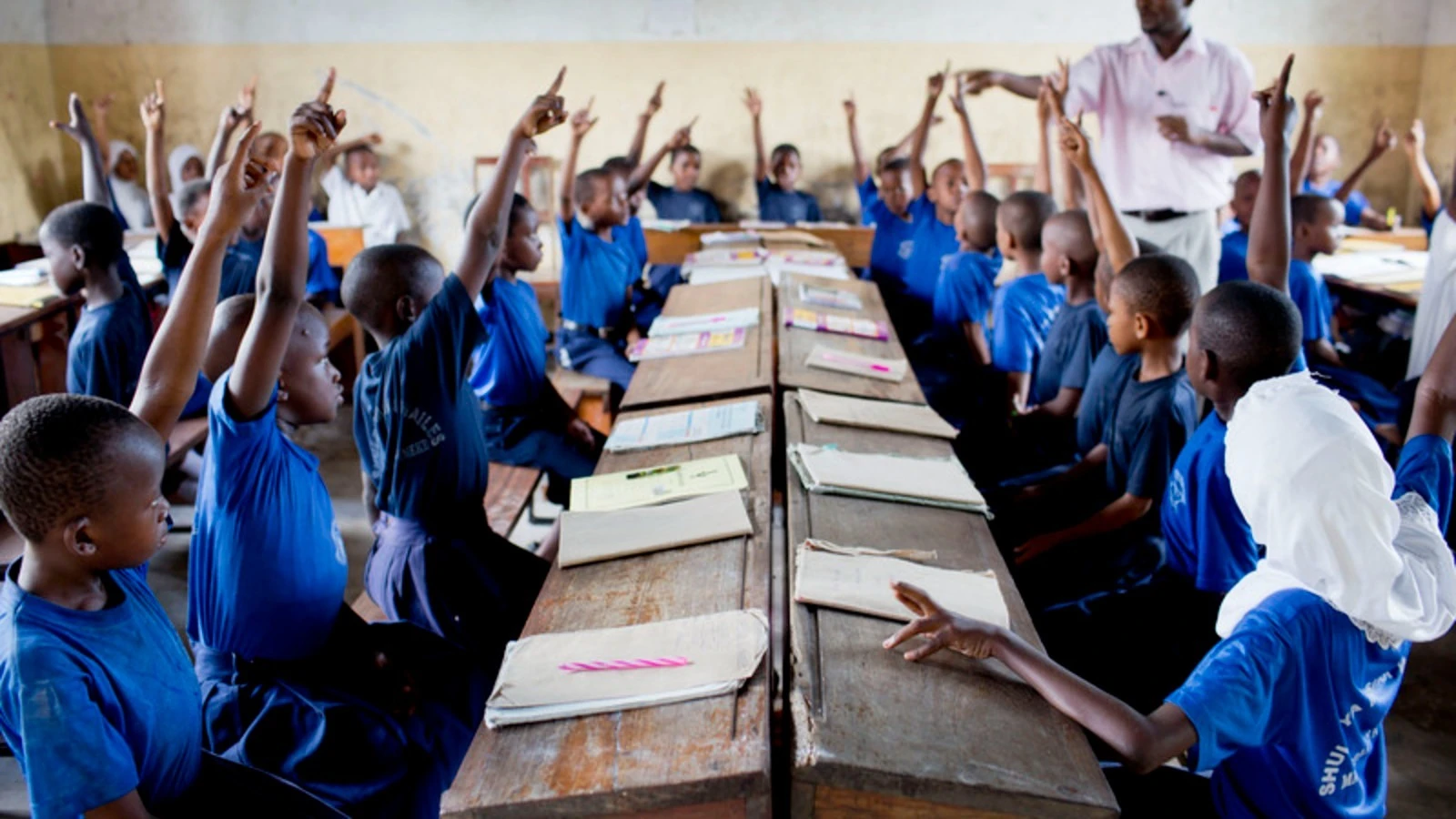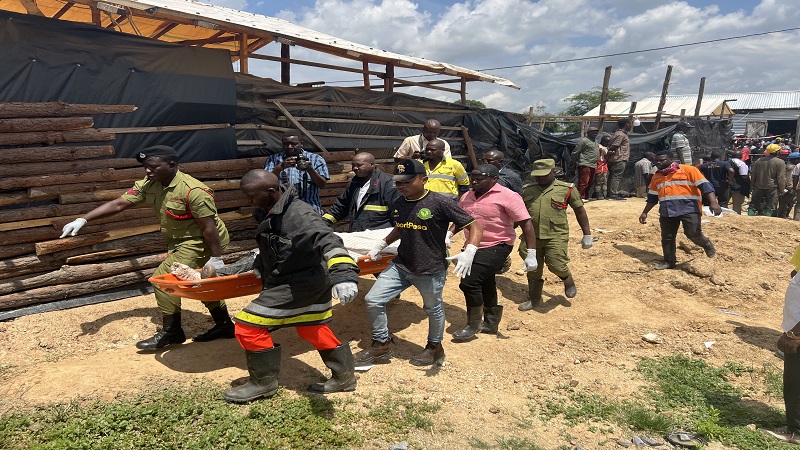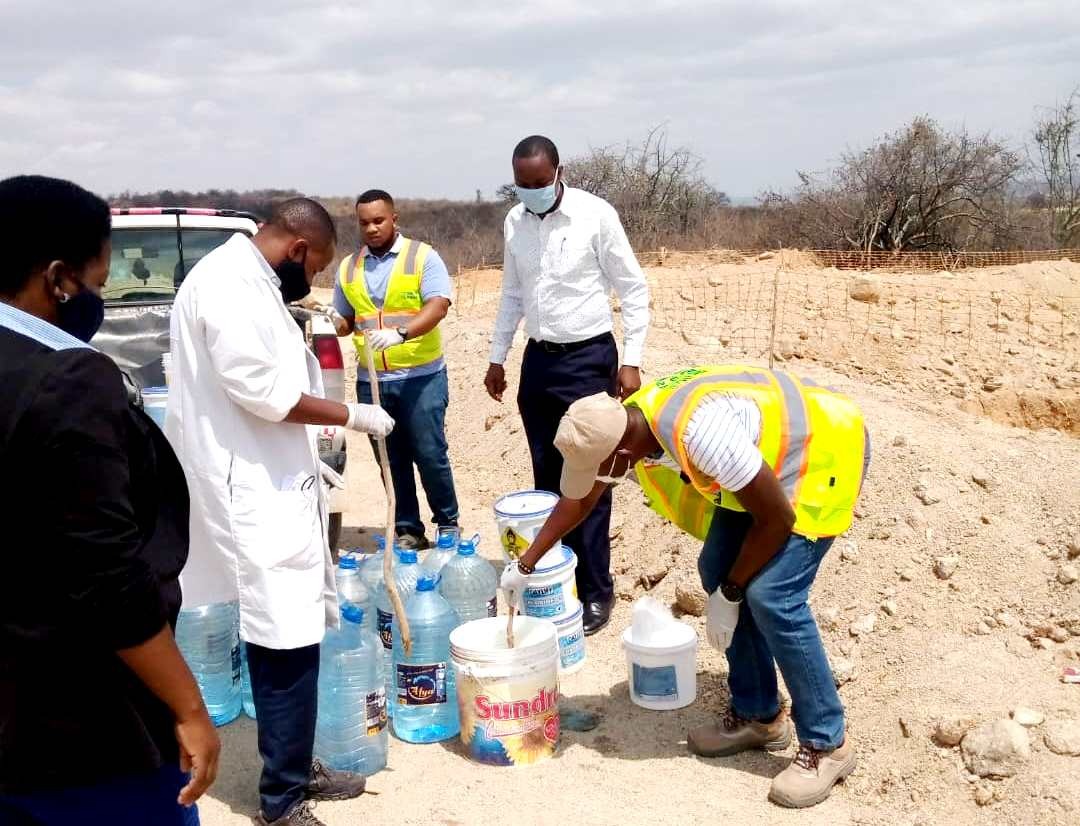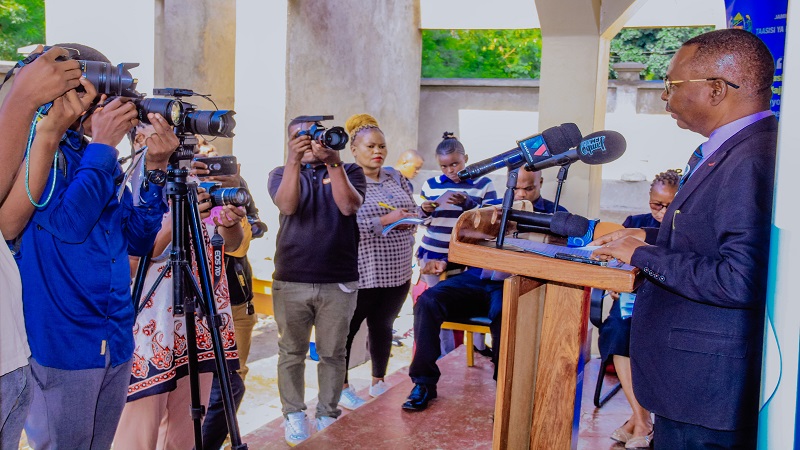AGRA hailed for making Africa projects a clear voice on future of food systems
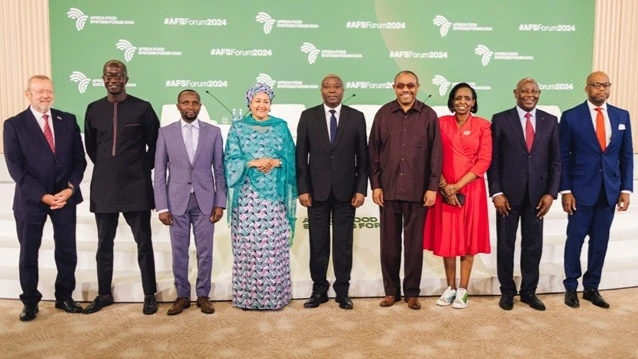
RWANDAN President Paul Kagame has commended the Alliance for a Green Revolution in Africa (AGRA), for ensuring that Africa projects a clear voice on future of food systems in the continent.
"The production of food is the foundation of our economies, and indeed of life itself. In Africa most of our people work in agriculture and agri-business. Significant gains have been made in recent years to make our food systems more resilient and productive but there is still so much room to grow, and make our farmers more productive and therefore wealthier," Kagame told the gathering who attended the just-concluded Africa Food Systems Forum 2024.
He added: "Higher productivity also means lower food prices for consumers, which has direct impact on poverty and inflation. This forum has highlighted key strategies for speeding up progress, especially digital and tech applications and attracting more private investment into agriculture."
He said Rwanda was proud to host the Africa Food Systems Forum in Rwanda.
Friday marked the successful conclusion of a four-day Africa Food Systems Forum in Kigali, which united over 5,000 delegates, 38 smallholder farmer groups, 97 countries, 302 speakers, 882 youth, 7 former heads of state, 37 ministers and 149 members of the press. Significant commitments were made, partnerships formed, and investments mobilized, marking a renewed commitment to the transformation of Africa's food systems.
The net result of the forum should be to catalyse and sustain inclusive agriculture transformation in Africa by increasing incomes and improving food security for 30 million smallholder households.
There was also a call to shift agriculture from a social sector to a commercial sector, and a focus on policy for the GenZ. Delegates observed that policy should be designed to fit GenZ.
"Old fashion Western ways of designing policies needs to be abandoned. Policies need to be anchored on populations and people that live the policy. Their response; from GENZ to Indigenous communities, must be the real basis of our national policies and implementation mechanisms," an official said.
AGRA Board Chair Hailemariam Dessalegn also, said: “No single entity can achieve the scale of change required. Transformation requires all of us--governments, private sector, civil society, and international partners--to work together in a spirit of true partnership and collaboration. We must leverage our collective strengths, share knowledge and resources, and commit to sustained and coordinated action."
"Africa Food systems have not received the political commitment and investments it deserves! We must ensure access to health nutritious food to all. We must tap into African youth to help develop and sustain innovation ecosystems in Food Systems" Hailemariam told delegates.
Established in 2006, AGRA is an African-led and Africa-based institution dedicated to placing smallholder farmers at the core of the continent's burgeoning economy. AGRA's mission is to transform agriculture from a mere struggle for survival into a thriving business. In collaboration with its partners, AGRA catalyses and sustains an inclusive agricultural transformation aimed at increasing incomes and enhancing food security in 11 countries.
Last week, Kigali was the epicentre of Africa's agricultural transformation as experts, policymakers, and private sector leaders gathered for a critical roundtable on the African Fertilizer and Soil Health Action Plan (AFSH-AP) and the Soil Initiative for Africa (SIA).
The event, co-hosted by the Coalition of Implementers for Fertiliser and Soil Health (CIFSH) and AGRA in partnership with the Joint Development Partners, brought to light the pressing challenges and opportunities in securing Africa's agricultural future.
"The timely launch of the African Agricultural Status Report is of paramount importance. His Excellency Hailemariam has rightly emphasized its significance as one of the most influential documents in the agricultural sector," said AGRA President Dr Agnes Kalibata.
Dr Kalibata pointed out that Tanzania's legacy program last year, for example, set a strong foundation for food systems, showing how government commitment can drive change. Now, Sierra Leone has the potential to become a powerhouse in food security, she reassured.
"We look at this (legacy programs) as opportunities for countries to step up and work faster - we are at a time where we need each other more than we have ever - where trade is an essential means to how we source our food. When I was minister of agriculture Rwanda benefited from seeds from Zambia - Zambia has advanced in producing seeds and has been a learning hub for other countries," she said.
The Kigali forum also witnessed the launch of the Centre for African Leaders in Agriculture Cohort 4. This initiative calls for an increase in leadership within the agricultural sector, fostering the next generation of agricultural leaders.
"CALA is an initiative I have personally championed from the outset, and we at AGRA are deeply proud of its achievements. We're also extremely thankful to the African Management Institute (AMI), who act as our delivery, implementation and learning partner across all CALA activities," said Dr Agnes Kalibata.
Across the continent, hundreds of CALA alumni and delegates are now leading transformation programmes within their organisations and countries, advancing food security and sustainable agriculture. Hailing from government, the private sector and civil society, participants have applied their learning to drive meaningful improvements in agricultural policy, productivity, and community wellbeing
As the forum came to an end, delegates had a conversation with the youth who had the opportunity to directly ask questions to the leaders. The session touched on how AFS partners can support young people to learn and find jobs in food systems.
Wamkele Mene, African Continental Free Trade Area (AfCFTA) CEO underscored Africa's current food insecurity crisis driven by external geopolitical factors, stating: "Millions have been pushed into poverty, but African countries have the potential to feed the continent."
He emphasized the need to reduce intra-African trade barriers, particularly on agricultural products, to unlock access to new markets and tackle the continent's food challenges.
James Mwangi, Equity Group Holdings CEO also drew attention to climate change, describing it as the "pandemic of agriculture" for smallholder farmers, calling for governments to address this with the same urgency as the COVID-19 pandemic, saying: "Smallholder farmers cannot be left to fend for themselves."
Lord Collins, UK Minister for Africa highlighted the UK's commitment to economic partnerships with Africa, emphasizing: "Economic growth is how we will feed us all in the future."
He praised the innovation and entrepreneurship showcased at the Forum, encouraging a paradigm shift in African agricultural leadership to fully realize the sector's potential.
Media professionals from across the continent had a session to highlight the role of the media industry in supporting and amplifying the African food systems narrative by amplifying key messages and generating conversations through mainstream and online media platforms.
Affiong Williams, Founder and CEO of ReelFruit was the overall winner of the Women Agri-Prenuer of the Year Award (WAYA) for outstanding contributions that exemplify how enterprise can transform lives and the agribusiness sector proving that sustainable impactful businesses can be built by women, receiving a cash prize of $40,000.
This year's WAYA awards finalists were selected from a record-breaking 1,535 applications spanning 44 African nations, a significant increase from the 1,430 applicants and 42 participating nations in 2023. This highlights the growing influence and importance of women in Africa's agribusiness sector. The finalists represented diverse countries, including Benin, Burkina Faso, the Democratic Republic of Congo, Ghana, Kenya, Malawi, Nigeria, South Africa, Tanzania, and Uganda.
Top Headlines
© 2025 IPPMEDIA.COM. ALL RIGHTS RESERVED











